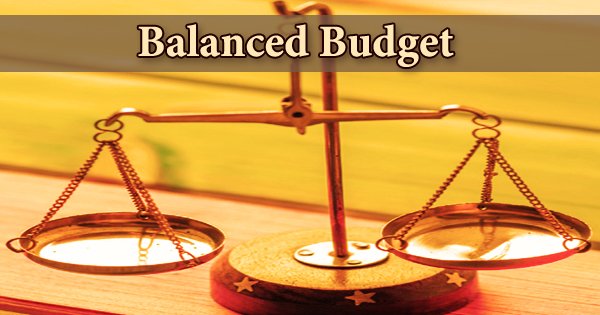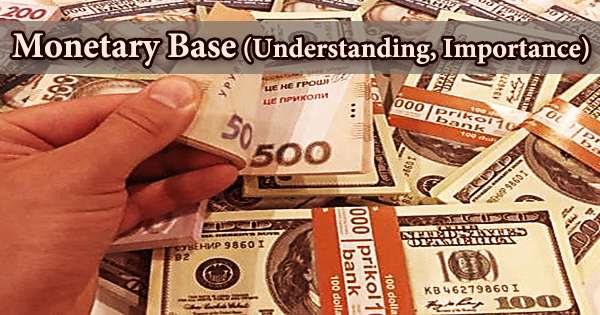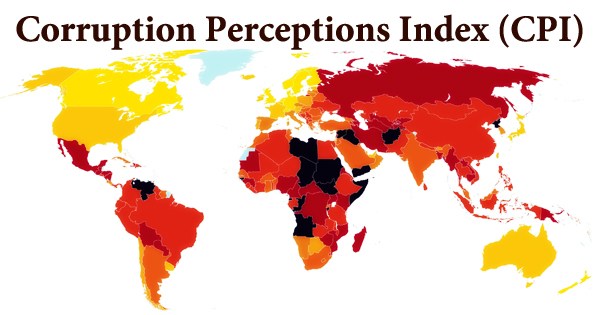A balanced budget (also known as a financial plan) is one in which revenues equal expenditures, with no budget deficit or surplus. This phrase is most commonly used to refer to budgeting in the public sector (government). As a result, there is neither a budget deficit nor a budget surplus (the accounts “balance”). All the more for the most part, it is spending that has no spending deficiency, however might actually have a spending excess. A financial plan can likewise be viewed as adjusted looking back following an entire year of incomes and costs have been caused and recorded.
A cyclically balanced budget is one that is balanced over the economic cycle, with surpluses in boom years and deficits in lean years, with these offsetting over time. Albeit the idea of a balanced budget applies to any association that produces working incomes and causes working costs, it is most ordinarily applied to government spending plans. Budget deficits, according to proponents of a balanced budget, burden future generations with debt.
When revenues exceed costs, a budget surplus develops, and when the opposite occurs, a budget deficit results. When unduly optimistic assumptions are utilized in the budget formulation, the real possibility of a balanced budget occurring is extremely low, the concept of a balanced budget might be misleading. Albeit the term balanced budget focuses towards a breakeven among overflows and shortfalls, it can likewise be a spending that posts an excess however not a shortage. In this way, incomes might be more prominent than costs in a reasonable spending plan, however not the other way around.

Official government budgets are frequently referred to as “balanced budgets.” Governments may, for example, make a news statement announcing that they have a balanced budget for the coming fiscal year, or politicians may campaign on a pledge to balance the budget once elected. A few financial analysts contend that moving from a spending deficiency to decent spending diminishes loan costs, expands venture, contracts import/export imbalances, and assists the economy with developing the more extended term. The expression “budget surplus” is frequently utilized related to a fair financial plan.
Other economists, particularly those connected with Modern Monetary Theory (MMT), say that government expenditure helps stimulate productivity, innovation, and savings in the private sector, and that balanced budgets are unnecessary in countries with the authority to issue their own currency. A budget surplus happens when incomes surpass costs, and the excess sum addresses the distinction between the two. In a business setting, an organization can reinvest overflows once more into itself, for example, for innovative work costs; pay them out to representatives as rewards; or disseminate them to investors as profits.
Components of a Balanced Budget –
- Revenues: The sale of goods and/or services generates revenue for corporations and non-governmental organizations. Income taxes, corporation taxes, social insurance taxes, and consumption taxes account for the majority of government revenue.
- Expenses: Expenses include the amount spent on everyday operations and factors of production, such as rent and wages, for corporations and non-governmental organizations. Expenses for governments include infrastructure, defense, healthcare, pensions, subsidies, and other things that contribute to the overall economy’s health.
Standard financial matters chiefly advocates a cyclic adjusted spending plan, contending from the viewpoint of Keynesian financial aspects that allowing the shortfall to change gives the economy a programmed stabilizer spending shortages give monetary boost in lean occasions, while spending plan overflows give restriction in blast times. When tax collections surpass government expenditures in a calendar year, the government has a budget surplus. For two reasons, a government entity’s ability to balance its budget is crucial.
- First, it’s possible it won’t be able to sell enough debt securities to cover the shortfall, at least not at an acceptable rate.
- Second, future taxpayers will be responsible for making up the difference, maybe through higher taxes.
It’s also worth noting that such a budget can be created on an annual, biannual, or cyclical basis.
- An annual balanced budget balances the budget for the financial year that it covers.
- The budget might fluctuate over two years with a biannual balanced budget. A biennially balanced budget will have a surplus in one and a deficit in the other of the same amount.
- Economic factors are taken into account in cyclically balanced budgets. When the economy is in a slump, they are usually in deficit, and when the economy is booming, they are usually in excess.
Defenders of a fair spending contend that exorbitant spending shortages saddle people in the future with illogical obligation. Arranging a decent spending assists governments with keeping away from exorbitant spending and permits them to zero in assets on regions and administrations that require them the most. A government should endeavor to maintain some balance between tax receipts and expenditures, just as any home or business must balance its spending against available income over time or risk bankruptcy. Additionally, creating a budget surplus might offer funding for unexpected expenses, such as if the government wants to raise expenditures during a recession without borrowing.
Spending shortfalls can be determined by deducting the all-out arranged use from the complete accessible financial plan. This will then, at that point show either a spending shortage (a negative contrast) or a spending excess (a positive distinction). Budget balance also allows governments to avoid interest rate charges on big loans from lenders (other countries and/or organizations such as the International Monetary Fund (IMF) and the World Bank) and to maintain policy control during times of crisis. The majority of economists think that an excessive public sector debt burden poses a significant systemic danger to an economy.
Nonetheless, a spending shortfall by the national government can be helpful in a time of declining financial action, since the overabundance spending can reinforce monetary action. In the long run, charges should be collected or the cash supply falsely expanded subsequently debasing the money to support this obligation. When taxes are eventually hiked, this might result in a burdensome tax bill, excessively high interest rates that stifle company and consumer access to credit, or runaway inflation that threatens the entire economy.
A balanced budget basically addresses an abandonment of the public authority’s obligation to utilize monetary approach to direct the economy somehow. Alternately, the best chance to sanction a spending excess is during a time of solid monetary development, when the public authority is in the best situation to settle obligation, subsequently getting ready for shortfall spending during the following downturn. However, when changes in the interest rate affect investment expenditures and money demand, as well as when changes in the price level affect money demand, the balanced budget shrinks.
Information Sources:
















